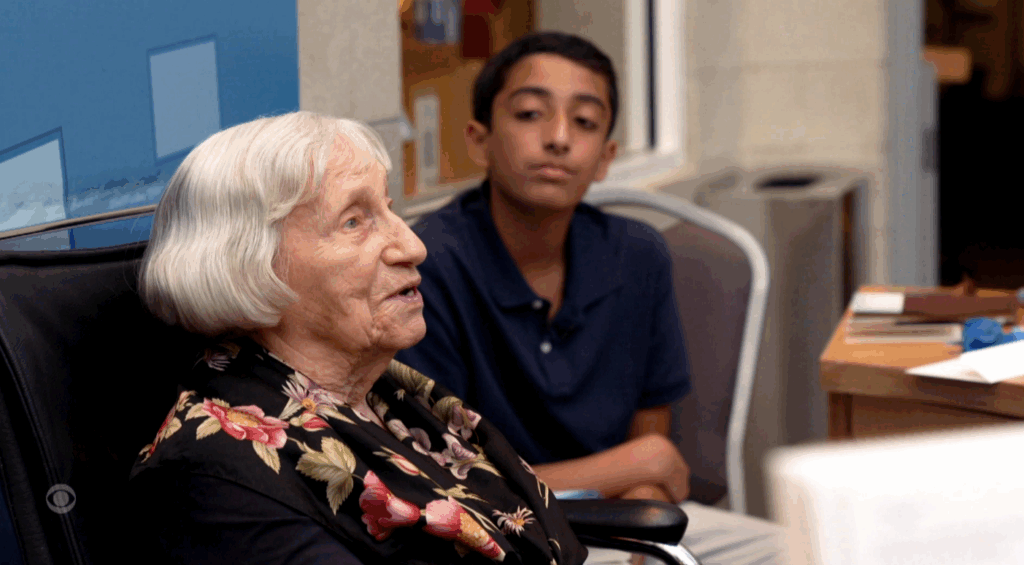
Curiosity helps us understand others’ experiences and learn more about the world.

Create positive relationships and meaningful connections with family members, classmates, and teachers.
Assess and be sensitive to the feelings and needs of others.
Acquire, remember, understand, and apply knowledge.
Enthusiastic to understand more about themselves, others, and the world around them.

Students will learn about the importance of curiosity from a Holocaust survivor and a student who was eager to listen to their stories. Students will reflect on the impact that curiosity has in their own life.



Think about the video.



K-5
6-12

Educators: Copy the Family Connection and email it to parents or click here to download a PDF version to email or print.
Watch
Discuss
Use these questions to start meaningful conversations about curiosity.
Activity